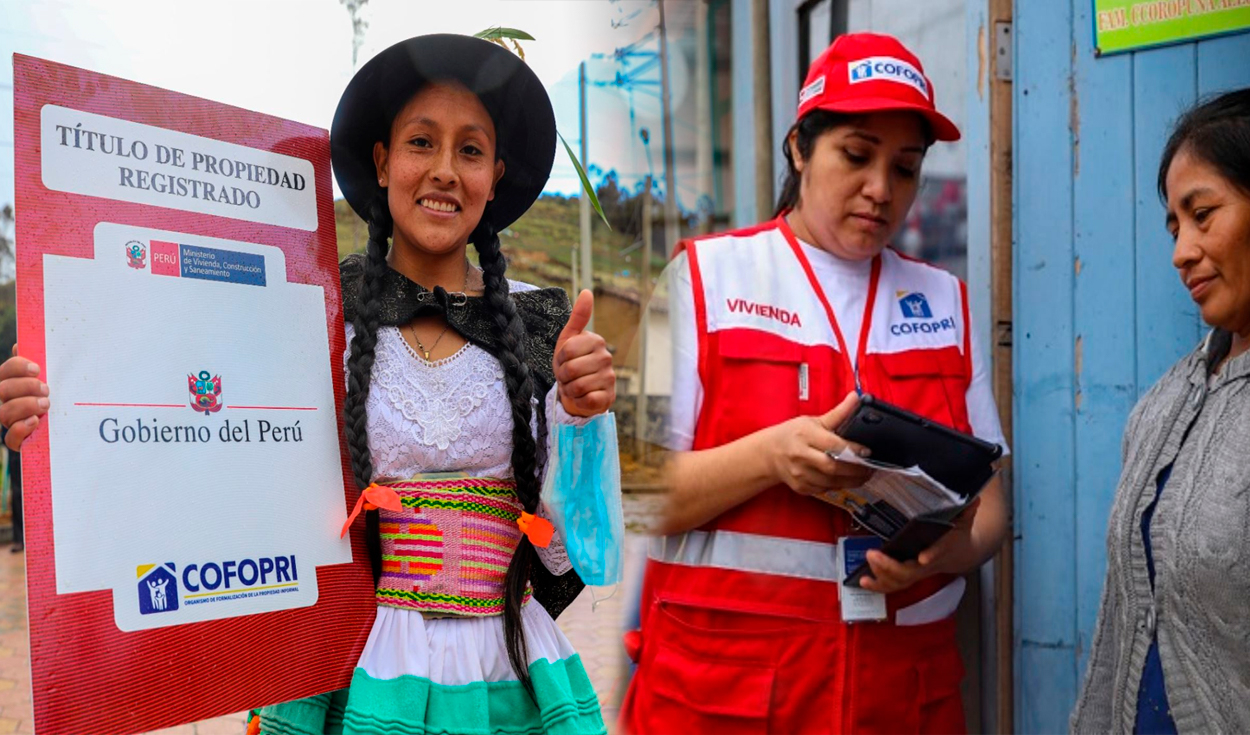
The sale of land in Peru has gained greater interest due to population growth and the growing demand for housing. In this context, the Informal Property Formalization Agency (Cofopri) has established regulations to limit the immediate sale of land with legalized titles.
This measure aims to protect citizens and prevent illegal land traffic, an activity that has increased in recent years. It is important to keep in mind that, although obtaining a free property title may seem an attractive opportunity to sell a home, there are restrictions that must be considered.
How many years should spend that a house can be sold or transferred, via Cofopri 2025?
Cofopri has established that those who obtain a Title of property for free They may not transfer or sell the land for a period of five years. This measure aims to prevent the commercialization of land, which is one of the most common activities among land traffickers. Law No. 31056, which expands the deadlines for informal possessions, includes this restriction to protect families that really need these titles.
In accordance with the regulations established by Cofopri and Law No. 31056, it is sought to avoid speculation and improper marketing of land, guaranteeing that families that truly require these property titles can access them fairly and safely.
Cofopri 2025: What are the consequences of transferring a property?
In the event that it is identified that a land with property title is transferred Before the established five years pass, COFOPRI has the power to reverse the property in favor of the State. This action implies that the transfer will be considered invalid and may not be registered in the SUNARP Land Registry. It is relevant to point out that the benefit of obtaining the title of property for free will not be accessible to those who already possess another property registered in their name in the national territory.
What are the requirements to access a property title that Cofopri offers?
For those who still do not have the Cofopri title, The institution announced modifications in the degree process, eliminating the requirement to present the proof of possession, a requirement that was previously mandatory. However, a fundamental aspect is maintained: applicants must demonstrate that they have occupied their lot directly, peaceful, continuous and public for a minimum period of one year before the date of registration.
To complete the procedure, the National Identity Document (DNI) and basic services receipts such as light, water, cable or telephone are required. In addition, it is necessary to provide documents that support ownership, such as the self -evaluation, testament or sale contract.
Source: Larepublica
Alia is a professional author and journalist, working at 247 news agency. She writes on various topics from economy news to general interest pieces, providing readers with relevant and informative content. With years of experience, she brings a unique perspective and in-depth analysis to her work.












